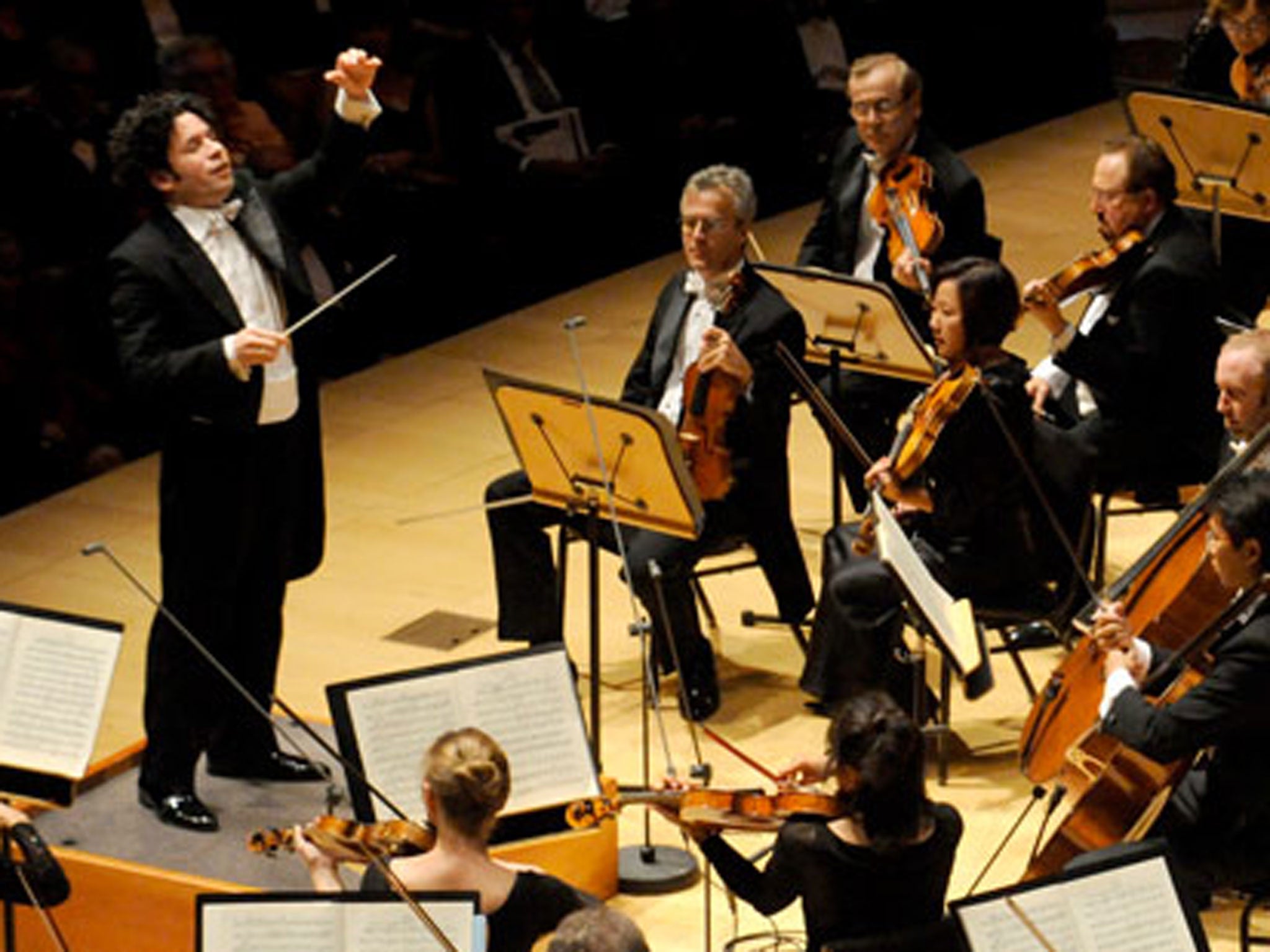Classical review: LA Phil New Music Group/Dudamel/Adams, Barbican, London
A theatrical showman of a composer presided over a weak ending which couldn't transcend its own experimentalism

‘Good evening!’ Wild applause. ‘Sorry for my very Latin accent.’ Tumultuous applause. Gustavo Dudamel knows how to play his audience, and audiences know how to play up to him. It was a nifty move for the Barbican to install him as one of its intermittently-resident International Associates, and here he was, proclaiming that new music was not the future: ‘New music is the present!’ And to prove it, he’d brought two new works. First up was Joseph Pereira’s Concerto for Percussion and Chamber Orchestra with the composer himself as soloist, and though his programme note described it as ‘a concerto of co-operation, not conflict’, ‘domination’ might have been nearer the mark, because he kept the musical spotlight firmly on himself throughout, with nobody else getting a word in edgeways.
Until the flamboyant emergence of Evelyn Glennie, percussionists were pretty much confined to the servants’ quarters at the back of the stage. Pereira has taken full advantage of the new freedom, revelling in the theatricality of his own performance to the point where one has to make a conscious effort to listen to the music. This turned here on the contrast between pitched (as in marimbas) and unpitched (as in drums) instruments, and on the slithery spectrum in between: I’ve never heard a marimba played with such microtonal delicacy. If it all added up to not very much, we did get to explore the wilder shores of technique.
The Korean composer Unsuk Chin was the originator of the other new piece, whose title Graffiti turned out to have no bearing on it at all. Chin’s long-winded programme note – which perpetrated the cardinal error of providing its own review – boiled down to the stunningly banal assertion that that it was all about ‘roughness and refinement, complexity and transparency’, as if that wasn’t what virtually every contemporary piece is now about. With a hyperactive fast movement, a drifting slow one, and a spiky finale, she displayed her pedigree as a former student of Gyorgy Ligeti, but her music, unlike his, didn’t transcend its own experimentalism. Dudamel conducted these tiresome pieces very efficiently, but the superb music-making of the LA Phil New Music Group had been put to more congenial use at the start of the concert, when John Adams conducted his own exuberant Son of Chamber Symphony.
Join our commenting forum
Join thought-provoking conversations, follow other Independent readers and see their replies
Comments
Bookmark popover
Removed from bookmarks